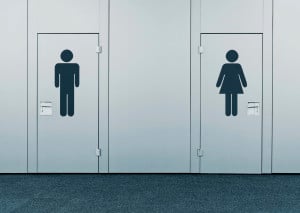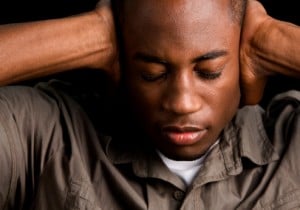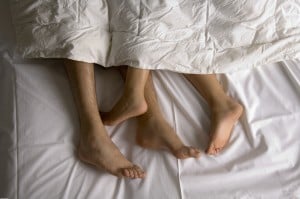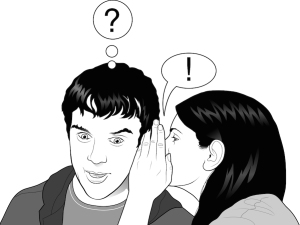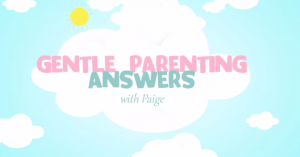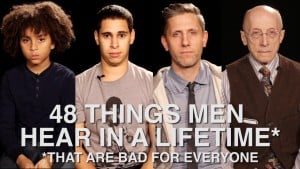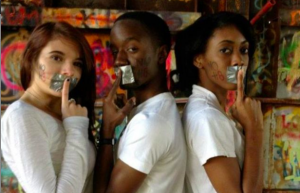Originally published on Role Reboot and republished here with their permission.
Years ago, when I was shopping around for a new tattoo, I was laboring my options, as I wanted it to be that perfect synthesis of personal importance, awesome political declaration, and cool-looking art.
One possibility I immediately clung to was getting a tattoo of the feminist symbol – you know, the one of the Venus/feminine symbol with the addition of the fist in the center of it. I thought it seemed perfectly suited for me. After all, I was a feminist, I thought feminist things, I wanted social justice, and I wanted to empower people. So why not?
If feminism has taught me anything, though, it’s that context matters.
With this particular tattoo idea, I was concerned with how a representative of empire – me, essentially – might be regarded when bearing a banner of the marginalized and oppressed.
It seemed a potentially sensitive topic, so before I could comfortably sign off on it, I asked a few of my female comrades who were feminists what they thought about a straight, cisgender, hetero man having a very visible tattoo of the feminist symbol.
Many understood why I’d chosen such an icon, and all agreed that it was applicable. However, some friends expressed to me that while they didn’t have any problem with me sporting such a tattoo, it was possible that other feminists might object to it, given that feminism has so many different interpretations.
Some feminists might be skeptical of my eagerness to show solidarity with them, while others may just outright deny the notion that a man could truly be a feminist. And while these interpretations might not be in line with my own feminism, I wanted to take care to be respectful of them.
It was important for me to gauge the opinion of different women who were feminists because I wanted to make sure I wasn’t guilty of having any blind spots and that my enthusiasm might unwittingly offend someone.
Declaring myself as a feminist was a fairly risk-free choice, but for many people (women, non-cis men, and so on), feminism is not a choice if they want to attain any amount of independence and equality. Was it really fair for me to co-opt that struggle for personal body art?
I’ve been rolling around this tattoo anecdote in my mind lately because I’ve noticed a wave of interest this year on men in feminism (here, here, here), and it’s rustled up this unresolved dilemma I have about men who label themselves as feminists.
In short, I’m skeptical of the legitimacy of men calling themselves feminists.
Yes, this is a huge can of worms to open in such a relatively small essay. Yes, it may sound like a big tangle of semantics to debate such a thing. But agency and empowerment are really important to me, and I want to remain vigilant about not intruding on anyone’s political space.
And before anyone reading this might misconstrue this dilemma as a statement that men definitively cannot be feminists, let me clear: That’s not what I’m saying.
In general, I do think that men can be useful to feminism.
Vested in privilege, they do tend to have greater access to the mainstream and are in a prime position to clear a space so that more women may be heard. Having been the political and economic gatekeepers of culture for so long, men also have an opportunity to subvert the patriarchal status quo in very meaningful ways, as demonstrated by groups like the White Ribbon Campaign and NARAL’s “Men for Choice.”
But men calling themselves feminists also makes me slightly nervous because I think a lot more accountability could be made of feminist men.
To say nothing of the occasional termite that eats his way into the movement (no names) and obviously has no place in feminism, I’m cautious about how easily some men are celebrated for simply declaring themselves feminists.
In the mainstream, that becomes a very real problem when, for instance, men like Joseph Gordon-Levitt or Aziz Ansari can call themselves feminists and immediately be celebrated for it, and yet when Beyoncé asserts that she is a feminist, she’s asked to show the credentials to support her claim (and even then, she’s still doubted).
As I mentioned, there’s relatively no risk in a man calling himself a feminist, which I think sometimes becomes problematic when it comes to holding feminist men accountable. For one, I’m not certain men should automatically be acknowledged as feminists simply because they have decided that hey, guess what, I’m a feminist now.
On the one hand, I’m glad that many men are open about their support for feminism, and I think that the more visible they are, the more it helps to normalize the action to other men who may be trying to figure a feminist identity for themselves. Visibility is important. It’s hard to argue against that.
But as far as accountability as a feminist goes, what exactly should be expected of men who call themselves feminists? A resistance to the perpetuation of patriarchy? What does that look like? In many ways, literally doing nothing by passively not participating in patriarchy could be seen as a way of ending that perpetuation, but does that a feminist make?
I’m not sure I have an answer for what men need or don’t need to do in order to call themselves a proper feminist, and I expect there are different answers for that depending on who you ask. Personally, I often struggle with calling myself a feminist even though most of my friends would say I am.
But I wonder if I’m qualified to make such a claim about myself.
Earlier this week, I read a good how-to of sorts for men in feminism and one of the steps really jumped out to me: “Men don’t get to determine if they are ‘allies’ to the feminist movement. Women do.”
To take that one step further, I think men can be most effective by working as feminism’s silent partners. I mean, the last thing feminism needs is to have men turn the movement into a real-life Onion headline nightmare.
Ultimately, I didn’t get the tattoo. It wasn’t worth offending anyone, there was no harm in my not getting the tattoo, and it didn’t stop me from incorporating feminism into my everyday life.
And besides, it’s one thing to call myself a feminist, but it means a whole lot more when others label me as such.
[do_widget id=”text-101″]
Drew Bowling is a soon-to-be social worker who writes about gender, race, and other intersecting issues. His writing has appeared on Role Reboot, Everyday Feminism, the Good Men Project, as well as at his oft-neglected but much-adored blog, Reading Without Men. Follow him on Twitter @dooshboring.
Search our 3000+ articles!
Read our articles about:
Our online racial justice training
Used by hundreds of universities, non-profits, and businesses.
Click to learn more








